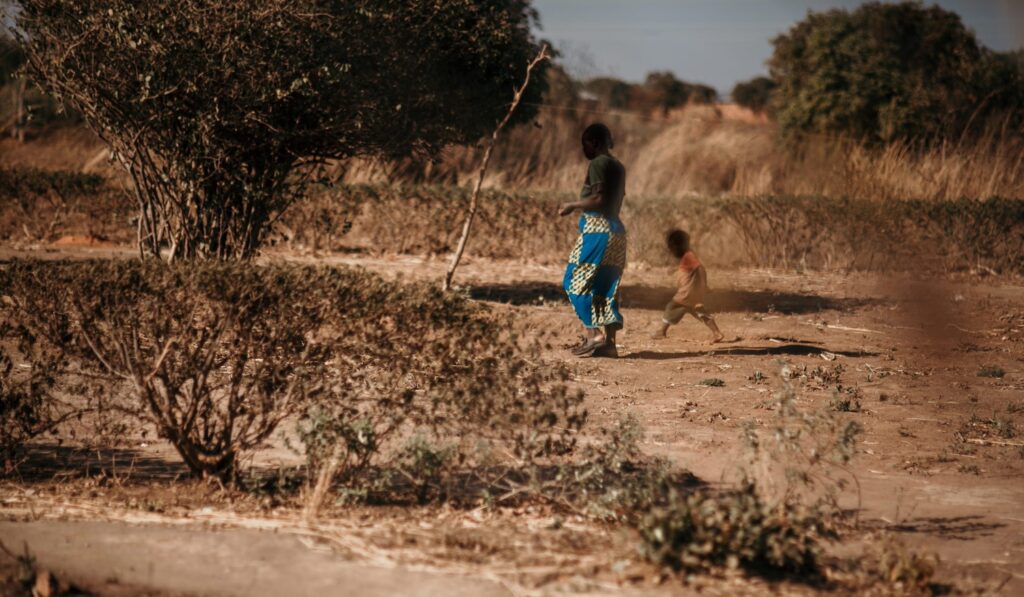A South African court has stopped a historic class action of 140,000 women and children from proceeding after the Zambian community came forward to seek redress for decades of lead contamination.
“This decision compounds a historic wrong, not yet remedied. Thousands of children suffering from lead poisoning will continue to have life-limiting futures. Families remain in fear of future medical bills – a burden that those who extracted the lead will never contend with. This outcome has all the hallmarks of colonial era values, vastly at odds with the ESG claims Anglo American makes.”
Chitra Karve, Chair of ACTSA
“This is a huge blow to the people of Kabwe, who are losing possible avenues for justice and a long-awaited clean-up of their environment. How many more generations have to suffer from the toxic lead pollution left behind by Anglo American? A company that boasts about its ESG credentials should not be leaving its historic host communities in peril.”
Anneke Van Woudenberg, Executive Director at RAID
“The court’s decision not to allow this momentous case to proceed reveals stark gaps in corporate accountability. Those who have been left to suffer the severe impacts caused by an Anglo American mine and its historical operations for decades are being prevented from accessing justice.”
Evie Clarke, Senior Policy and Advocacy Officer at Corporate Justice Coalition
“The people of Kabwe who have suffered lead poisoning for decades due to Anglo American’s negligence deserve access to justice. This decision is another block in the way of that right, and serves only to reinforce the kind of corporate impunity that puts profit above people. The people of Kabwe and other mining-affected communities around the world deserve better treatment and respect.”
Saul Jones, Communications Coordinator at London Mining Network
Today, civil society groups express deep disappointment with the decision of the South Gauteng High Court in Johannesburg to stop a class action lawsuit from proceeding against an Anglo American mine.
The ruling, issued on Friday 15 December, is a massive blow to the 12 claimants who brought the case on behalf of an estimated 140,000 Zambian women and children suffering from lead poisoning, which continues to cause permanent brain damage within the community. The claimants are determined to appeal the High Court judgment.
Kabwe, a town in northern Zambia, and its surrounding area is one of the most lead-polluted places in the world, according to pollution experts. Its residents have been seeking remedy and clean-up for decades, as generations of women and children continue to suffer from the harmful effects of lead poisoning in the environment.
Between 1925 and 1974, the town was the site of a large Anglo American lead mine. It is alleged that the defendant oversaw and provided technical and medical advice on the mine’s operation, deficiencies that resulted in heavy contamination of the local environment, poisoning the local community for several generations.
As early as 1969 to 1970, a doctor at the mine, Dr Lawrence, sounded the alarm on lead poisoning in Kabwe after investigating the blood lead levels (BLLs) of 500 local children. This was confirmed by Dr A.R.L Clark in 1975, another doctor at the mine, who surveyed the BLLs of children for five years and found heavy atmospheric lead contamination prior to 1975. The elevated levels of lead pollution correlated with dangerously high BLLs within the community. The company failed to clean-up before handing over the mine to a Zambian state-owned company, ZCCM.
Lead poisoning has serious harmful effects on the body, especially in children and pregnant women. The World Health Organization (WHO) states there is no safe level of lead in the body, and comparable levels to Kabwe do not exist anywhere in the global North.
Anglo American contested the lawsuit arguing that ZCCM is responsible for current lead pollution in the Kabwe environment.
The claimants are represented by law firm Mbuyisa Moleele Attorneys with Leigh Day acting as consultants. In a joint statement responding to the ruling, Leigh Day partner, Richard Meeran, and Mbuyisa Moleele founding partner, Zanele Mbuyisa, said:
“We are extremely disappointed by the judgment, which we consider to be fundamentally flawed.
“We remain committed to securing justice for the 140,000 women and children affected by lead poisoning in Kabwe and the communities have made their intention to appeal very clear.”
Seven groups, including Amnesty International and the Southern Africa Litigation Centre (SALC), had submitted third-party interventions on the case as amici curiae (“friends of the court”). This included the UN Special Rapporteurs on toxics and human rights, and the UN working group on discrimination against women and girls.
Lord Peter Hain addressed Anglo’s investors in 2022 pointing out the company’s ESG commitments: “Alarm bells will surely ring for Anglo American investors, aware of the increasing importance of strong Environmental, Social and Governance (ESG) business policies, about the damage the Kabwe case is doing to Anglo’s reputation.”
As a result of the decision, hundreds of thousands of women and children will continue to be harmed by the lead pollution left behind in Kabwe. However, the commitment from claimants to pursue the appeal, and the resolve of the lawyers to find the best possible outcome for those affected by lead poisoning, is clear.
Civil society organisations including RAID, London Mining Network, CJC and ACTSA stand with the Kabwe community as they continue to seek urgent medical assistance and clean-up of the devastating toxic lead legacy.
For more information, including medical reports and a detailed history of the case, visit website here.

